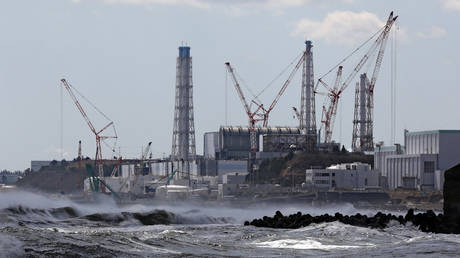
The operators of Japan’s Fukushima nuclear power plant have announced plans to build an undersea tunnel to facilitate the release of more than one million tons of treated water from the site into the surrounding ocean.
The 1km-long and eight-feet-wide tunnel will run east from the water container tanks at the nuclear plant into the Pacific Ocean, allowing roughly 1.27 million tons of treated water to be released into the sea, despite opposition from neighboring countries.
Japan insists that the water, which is set to be released in two years, is completely safe, having been thoroughly treated to remove radioactive particles. The containers include water that was used to cool down the nuclear power plant after it went into meltdown in the wake of the 2011 tsunami, as well rain and groundwater that subsequently seeped in.
The Tokyo Electric Power Co (TEPCO) is set to begin building the tunnel by March 2022, pending feasibility studies and the relevant authorization from Japanese officials.
Neighboring countries and fishing communities have criticized the water-release plan over safety fears, and worry that it will undermine confidence in seafood caught in the surrounding waters.
TEPCO has pushed back against the concerns, arguing that this tunnel would alleviate those worries by preventing the risk of the treated water flowing back to the coast.
The Fukushima plant’s chief decommissioning officer, Akira Ona, stated that officials are ready to “dispel concerns held by people involved in fisheries” and other industries. TEPCO has said that it will only proceed with the release if the move passes inspections by the International Atomic Energy Agency, which has previously defended the plan.
Japanese PM Yoshihide Suga has described the planned release as an “inevitable task” at the culmination of the long decommissioning process, designed to clear up the impact of the devastating tsunami.
The 2011 Tohoku earthquake and subsequent tsunami left nearly 20,000 people dead along Japan’s Pacific coast. The natural disaster caused a meltdown at the Fukushima plant, resulting in the worst nuclear disaster since the 1986 Chernobyl incident, with the Japanese government maintaining an evacuation order on one of the towns affected until 2019, when 40% of Okuma residents were permitted to finally return home. Citizens from Futaba and a number of neighboring towns still face restrictions due to the contamination caused.
If you like this story, share it with a friend!




